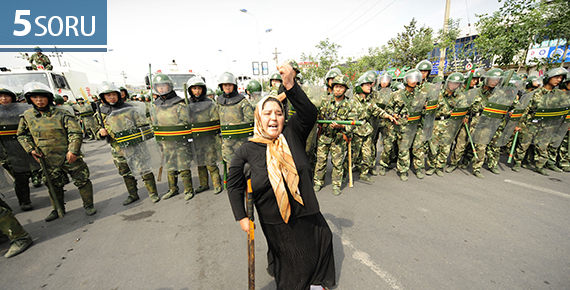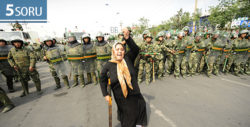Taipei exhibition tells story of East Turkistan’s Uighurs

Taipei Times, 17 October 2019
 By Ann Maxon – A photographic exhibition on concentration camps and the history of East Turkistan, also known as Xinjiang, is to open tomorrow at Taipei’s 228 Memorial Museum.
By Ann Maxon – A photographic exhibition on concentration camps and the history of East Turkistan, also known as Xinjiang, is to open tomorrow at Taipei’s 228 Memorial Museum.
Named “A Prison Without Walls — East Turkistan Today,” the exhibition features photographs of re-education camps, the everyday lives of Uighurs and the July 2009 Urumqi riots to shed light on the human rights crisis in East Turkistan, as well as the region’s unique history, the Taiwan East Turkistan Association (TETA), which is cohosting the event with Taiwan Friends of Tibet (TFOT), said on Monday.
The exhibition — originally organized by the Uyghur American Association (UAA) and the One Voice, One Step initiative — was launched at the beginning of the year and has been presented in 33 cities in 15 countries, TETA president Frank C.T. Ho (何朝棟) said.
While protests in Hong Kong have been the center of media attention for months, the human rights violations in East Turkistan are no better, he said.
It is estimated that at least 1 million — or one in six — Uighurs and other ethnic minorities in the region have been sent to camps, he said.
Of those not detained, many are forcibly housed with Han people under what appears to be just another form of surveillance, Ho said.
“They deserve our attention not only from the standpoint of human rights and freedom, but also from the standpoint of protecting our sovereignty and democracy,” he said.
The exhibition has great significance because reports from East Turkistan are few, Taipei City Councilor Lin Ying-meng (林穎孟) said.
“It is a fact that the Chinese communist government has been oppressing the Uighurs,” she said.
Calling China’s policy in the region a form of ethnic cleansing, Democratic Progressive Party (DPP) Legislator Lin Ching-yi (林靜儀) said that many Taiwanese experienced similar oppression under the former Chinese Nationalist Party (KMT) regime.
“Many Taiwanese aged 60 and older would remember being forced to wear a dog collar in school as punishment for speaking Hoklo [commonly known as Taiwanese] when they were younger,” she said.
While such practices no longer exist in Taiwan, it is the responsibility of all free nations to stand up against China’s crackdown on human rights, she said.
The exhibition, which is open Tuesdays to Sundays from 10am to 5pm, runs until Nov. 17.
http://www.taipeitimes.com/News/taiwan/archives/2019/10/17/2003724096

